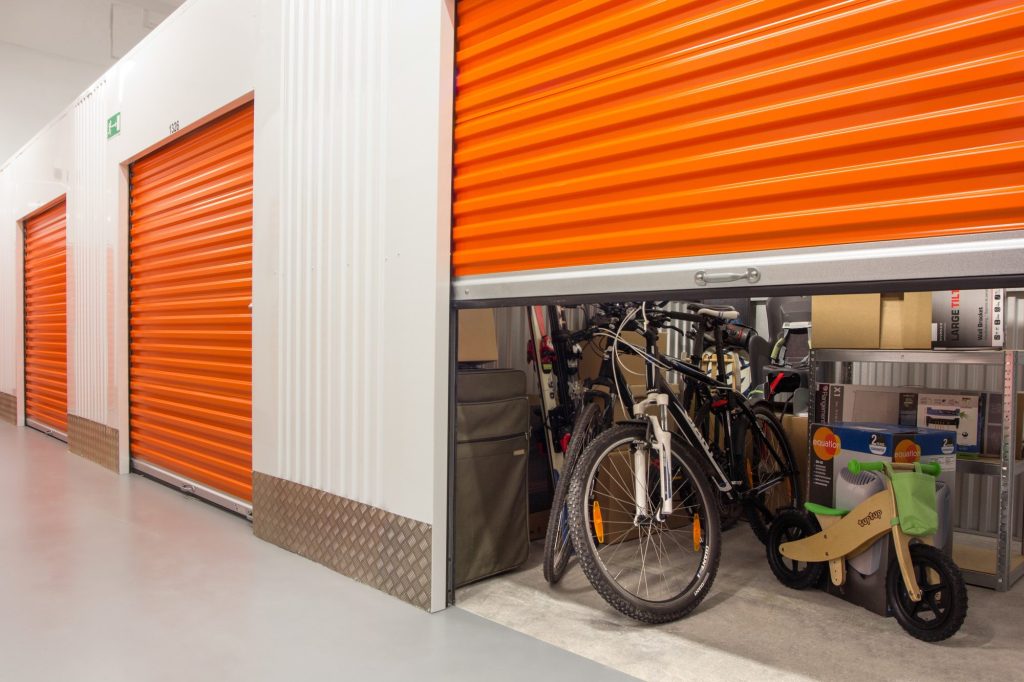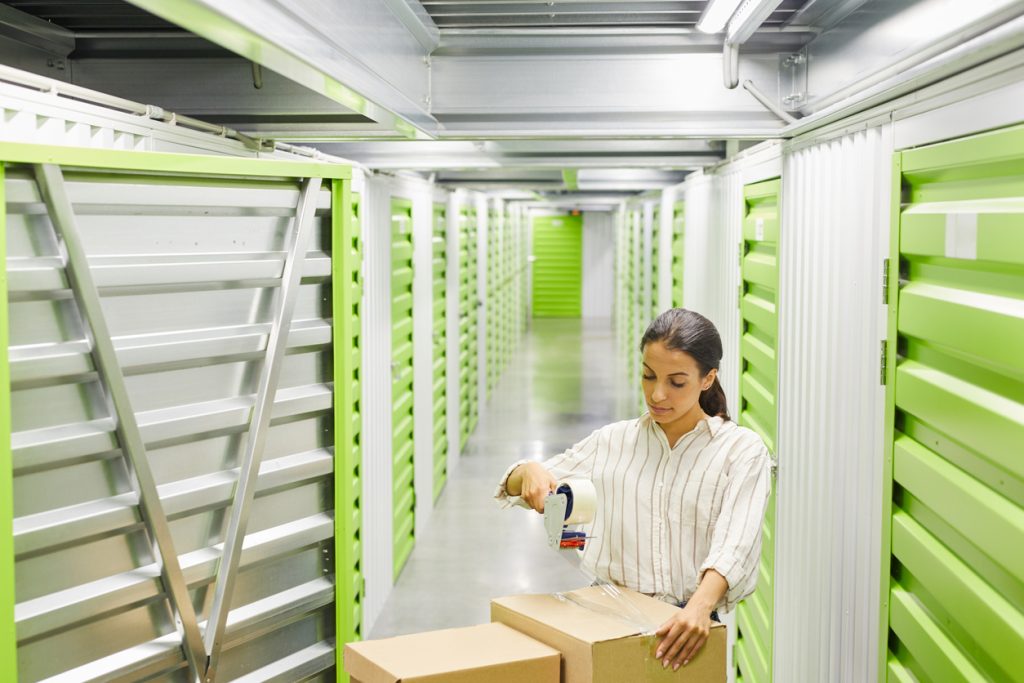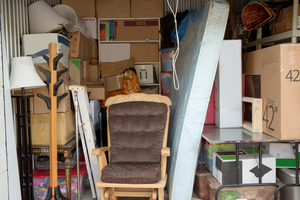One of the most common questions people ask when it comes to self-storage is what exactly they can put in storage units? It’s not a foolish question. The penalties for storing prohibited items include fines, confiscation of items and if you’ve really fallen foul of the law, prison.
The answer is that you can put most items in a storage unit, including personal documents, teddy bears and furniture. The better way to phrase the question is to ask what items you can’t store. Some items are common sense. Yet storage companies have to include them in contracts because some people don’t have sense or willfully disregard the rules.

Items NOT Permitted In Storage Units
- Perishable goods. No fresh food and veggies, and no frozen veggies either. Storing these items is unhygienic, and they can attract rats, other rodents and insects.
- Non-perishable food. No tinned food, pasta, sugar, flour or sauces in packets, etc. While storing these items may not be unhygienic, they can attract rodents and insects.
Note: Some storage facilities allow tinned food, but don’t make any assumptions. Ask before you store. - Pets. Yes, people have stored a variety of animals. It’s likely that more people will try to store animals. It is illegal to store animals, not to mention inhumane – don’t do it.
- People. While it’s possible that some criminal elements store people in their containers, this applies mostly to people who are tempted to live in their units. It’s tempting to use your storage space as temporary accommodation, especially in an emergency or during difficult financial times; however, it is illegal.
- Combustible or flammable material. While you might think of your storage unit as a convenient place to store some of your DIY materials, you have to ensure that you stick to items that won’t explode or burst into flames at any point in time. This means no paint, spray paint or paint thinner, no gas, no alcohol and no fireworks. Definitely don’t keep a supply of matches that you’re saving for Armageddon.
- Toxic or poisonous substances. It’s difficult to think of any reasons the average citizen would have hazardous or toxic materials, but in case you do, don’t store them in your unit.
- Illegal goods. You can’t store drugs, counterfeit items and stolen or illegally imported items. Again, this shouldn’t apply to ordinary citizens, but it’s good to be aware of the dangers of storing any goods on behalf of someone else. If it’s in your storage unit, you are the one who will go to jail.
- Weapons and firearms. The law states that you must store weapons responsibly; unfortunately, that doesn’t include storage units. You are required to store most weapons safely in your home and not off the premises. So that excludes self-storage straight away. Specifically, the law states that guns “must be stored securely to prevent, as far as is reasonably practicable, unauthorised people taking or using them”. Even storage facilities with the tightest security carry a risk of theft. Furthermore, firearms and ammunition are considered explosive and combustible items, so you can’t store them either.
Most storage companies are very clear about what items are not permitted in their storage units. But if there is any doubt, make sure that you ask first before putting anything away. You don’t want to make a silly mistake which ends up costing you a small fortune in fines – or a criminal record.








